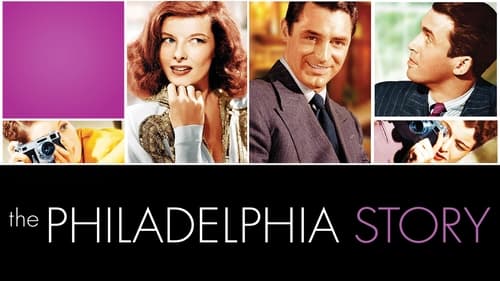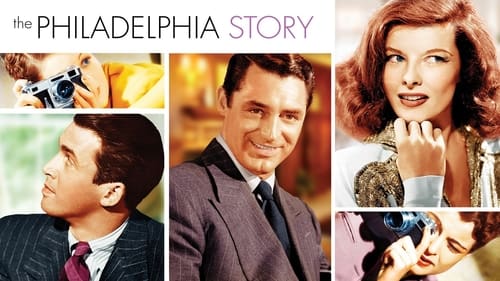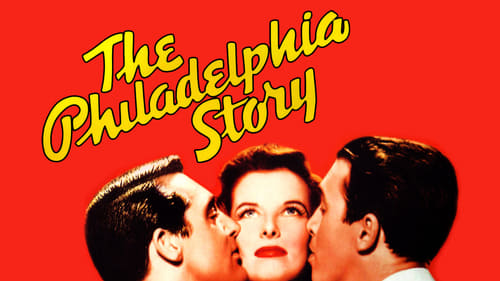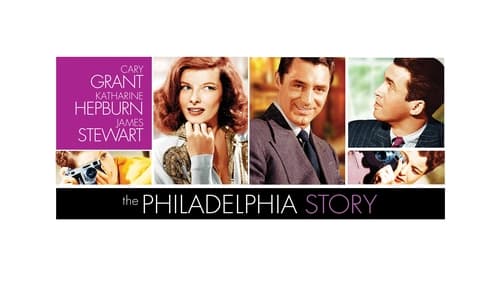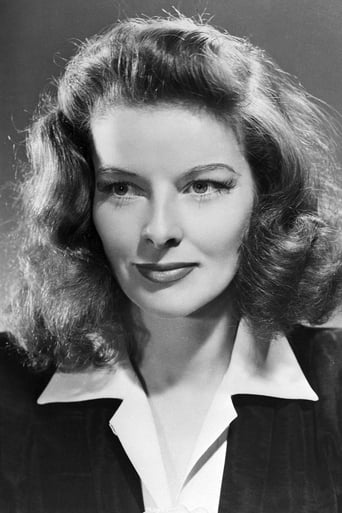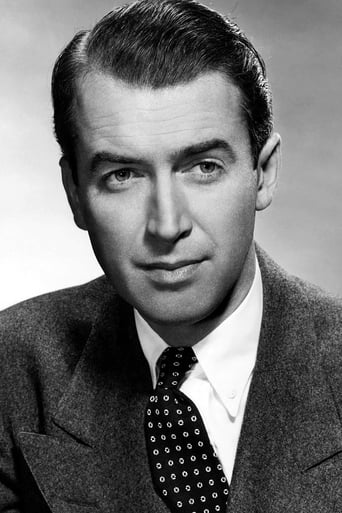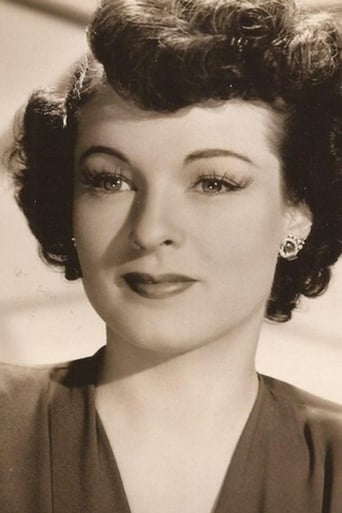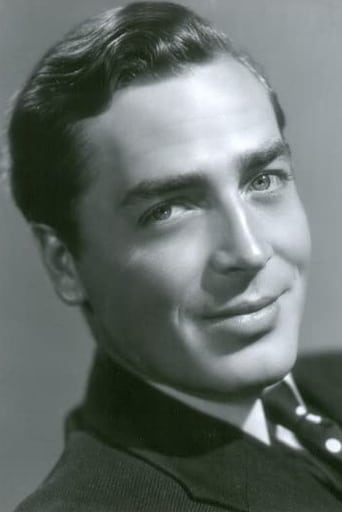Antonius Block
What a delightful movie this is - loaded with star power, clever dialog, and a script that keeps us guessing. The first scene, where Cary Grant is shown leaving his wife Katharine Hepburn with no words spoken, sets the tone. As Hepburn plans to remarry, Grant seeks to get revenge on her by sneaking a reporter (Jimmy Stewart) and photographer (Ruth Hussey) into her home on the wedding weekend. Stewart is brilliant in the role from beginning to end. He's upset over being there in the first place, as he's a serious writer who has been asked to write a trashy tabloid story, and he's not a big fan of the well-to-do either. The scene early on where he examines the silver, thinking he's alone, and is confronted by the butler, is hilarious. Later he dials up another room within the home at random and says "This is the bridal suite, would you send up a couple of caviar sandwiches and a bottle of beer?" When asked who he is, he then says "This is the voice of Doom calling. Your days are numbered 'til the seventh son of the seventh son," before hanging up. He has other comic scenes early on, including asking the librarian "Dost thou have a washroom?" after sensing her formality.I just loved how the film wrong foots us, as we expect it to go in a direction of these two being undercover spies with all sorts of similar antics throughout the weekend. Instead, Hepburn immediately sees through the ruse, and proceeds to hilariously torture the pair with questions of her own. Along the way an uncle will be assigned the identity of the father, only to have the father show up unexpectedly himself. Hepburn's much younger little sister (Virginia Weidler) is part of the fun, at one point going up to the piano with a gleam in her eye, and busting out a raucous tune: "Lydia, oh Lydia, say have you met Lydia? Oh Lydia, the tattooed lady. She has eyes that folks adore so, and a torso even more so..."Throughout all this madcap chaos, the script is fast-paced and clever. For example, in response to her mother asking if there's no privacy anymore, Hepburn quips, "Only in bed, mother, and not always there." I also loved it when she referred to the poet Li Bai at one point: "There was a Chinese poet who was drowned while trying to kiss the moon in the river. He was drunk....but he wrote beautiful poetry." More importantly, there are observations on character and love. The father (John Halliday) tries to explain an older man's attraction to a younger woman, and even though he seems like a rake, there's something to what he says. The film takes a serious turn when he and Grant both say some devastating things to Hepburn about her insensitivity, and the hurt in her reaction shows her acting prowess. With all of that said, I think it was really Jimmy Stewart who really made this movie special with two wonderful scenes. The first is where he's drunk and goes over to Grant's place, which is an absolute classic. The scene was unrehearsed, what we see was the first take, and it includes a couple of improvisations - Stewart hiccupping, and Grant quipping "Excuse me." The look in Stewart's eyes really make us feel that he's drunk, and that we're getting a glimpse at two friends (the actors themselves) having fun. In fact, the way Stewart looks at people throughout the movie - the butler, the librarian, Grant, and Hepburn - is just fantastic, and still makes me smile thinking about it.The second amazing scene is when he and Hepburn (who's also drunk) realize they're in love. "A magnificence that comes out of your eyes, in your voice, in the way you stand there, in the way you walk. You're lit from within, Tracy. You've got fires banked down in you, hearth-fires and holocausts," he says. She answers, "I don't seem to you made of bronze?", a reference to one of the cruel things that's been said to her, and he responds, "No, you're made out of flesh and blood. That's the blank, unholy surprise of it. You're the golden girl, Tracy. Full of life and warmth and delight...". When he kisses her, she emits a beautiful "golly," and later, before they dash off across the lawn, she says "put me in your pocket, Mike." It's a wonderful, romantic scene. Oh, and I should say, the lines they say to each other earlier in the evening - "Hello you... You look fine", "I feel fine" are just lovely too. It's for that reason that I have to say, I was a bit disappointed in Hepburn's choice at the end. The evening before she does say "The time to make up your mind about people is never", and it is in the spirit of a reconciliation which grows, but just doesn't feel right. Aside from her feeling the blame for her ex-husband's alcoholism (the nerve of her not understanding him better!), the real passion and chemistry is with Stewart. With that said though, it's a delightful movie, and the story behind its making and Katharine Hepburn's resurrection is a real testament to her intelligence.
federovsky
Hollywood frequently had to pull a contortionist act in order to make films about it's favourite subject, the elegant rich, without alienating the general population. And so we get films that mildly ridicule the elegant rich - a socially acceptable position even among the elegant rich themselves. It's done here by infiltrating their mannered/manored world by an ordinary Mike, reporter James Stewart, and flirting with the idea of class rapprochement.To get that far, they have to make Mike not just a reporter but a novelist, and not just a novelist, but a brilliant and sensitive one. Not only that, but the elegant, rich Tracey (K. Hepburn) must be brought down a notch by behaving in a rather, er, loose fashion. You see the contortioning. Having exposed the mechanism, it's less easy to be engaged by these goings on, but it's worth seeing for the way they all deal with the (somewhat risqué) sexual indiscretion later on, and for Hepburn, who polishes this to a shine.
mmallon4
At the beginning of The Philadelphia Story, Cary Grant pushes Katharine Hepburn to the ground by putting his hand in her face. With any other actor this would be a vile act against a woman but because it's Cary Grant, it works and thus showing the power of these three acting titans, Hepburn, Grant and Stewart. The Philadelphia Story gives an insight into the lives of the rich and famous, something which would be harder to pull off in later decades not to come off as a metaphorical dick waving display of wealth. I do find myself trying to figure out why this is? Could it be the incredibly high standards of writing and filmmaking craft on display here and the love of these performers; even more so when compared to the poor standard of romantic comedies today?Tracy Lord (Katharine Hepburn) is not a ditzy socialite. In this role written for Hepburn it's clear that she is a symbol of first wave feminism; wearing pants and an emasculating suit and being an influence on her younger tomboy sister but more importantly it's not to be undermined the complex characterisation of Tracy Lord. Like in Holiday, Grant and Hepburn share some very poignant and hard to decipher dialogue in which he tells her about her standing as a goddess and her lack of human frailty. Despite her ego, she claims in a sincere manner "I don't want to be worshipped, I want to be loved". Under the surface of the usual Cary Grant charm and elegance, C.K. Dexter Haven is one the darker characters Grant ever played. Apparently he "socked" Tracy on occasions, destroyed the cameras of multiple photographers on a boat and is a recovering alcoholic. This is Cary Grant at his most knieving with no remorse and enjoying it, displaying the darkly comic side of The Philadelphia Story.However this is Stewart and Hepburn's film. Macaulay Connor is the moral, do gooder James Stewart is known for (at least at the beginning that is); objecting to having been given the assignment of snooping in on the wedding of a Philadelphia socialite, as opposed to something with more journalistic integrity. He is appalled by the rich and their lifestyle but unlike Jefferson Smith he throws this out the window when he falls in love with Tracy; a piece of subtle cynicism on the movie's part? I also really appreciate the relationship he shares with his work partner Liz Imbrie (Ruth Hussey). Her character is very cynical throughout most of the film but later reveals her more idealist side. She shares a platonic friendship with Macaulay but there are hints they have deeper feelings for each other. Virginia Weidler on the other hand is a real scene stealer. Just look at her speaking French in an overdramatic manner then singing Lydia the Tattooed Lady by the piano; a pointless scene but funny.I can't call The Philadelphia Story a predictable movie as I couldn't see where the story was going at the end. I could have sworn she would end up with Jimmy but at the last minute and totally out of nowhere she goes with Cary and with it coming off as contrived. Likewise a drunken Stewart carrying Hepburn in his arms while singing Somewhere Over the Rainbow is surely one of the greatest things ever caught on celluloid.







